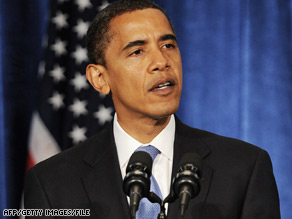Whether it's milking venomous spiders or picking up roadkill, the secret to career fulfillment is not to follow your passions, but to chase your opportunities.
| Mike Rowe |
 |
I've been thinking about the first time I castrated a lamb with my teeth. (It's a real job, I swear.) I was anxious, and judging by the sounds coming from the lamb, I wasn't the only one. He was propped up on the fence rail, pinned in place by a cheerful rancher named Albert, who was holding the animal's legs apart for my convenience. The blood in Albert's mustache was still wet from his demonstration moments before, and he spoke in a way that reminded me of the directions on a bottle of shampoo. "Grab scrotum. Cut tip. Expose testicles. Bend over. Bite down. Snap your head back. Spit testicles into bucket. Rinse and Repeat."
It wasn't the first time I found myself cocking my head like an Irish Setter, wondering if I'd somehow misheard the instruction. (Spit testicles in bucket? Really?) I had assumed the same expression a few months earlier, when a jovial bridge worker explained that I would be walking up a skinny suspension cable 600 feet in the air to change a light bulb over The Straits of Mackinac, which connect Lake Michigan to Lake Huron. Likewise, when the happy-go-lucky Shark Suit Tester casually informed me that I would be leaping into the middle of a feeding frenzy to "field-test" the efficacy of his "bite-proof shark suit."
I didn't create my show on the Discovery Channel, Dirty Jobs with Mike Rowe, to get myself killed or scare myself half to death. I created it to show that there are hundreds of ways to make a living that no one was talking about. After four years and 200 dirty jobs, I'm no longer surprised by the variety of opportunities out there. What does surprise me is the fact that everybody I've met on this gig--with the possible exception of the lamb--seems to be having a ball.
It's true. People with dirty jobs are in on some sort of a joke. Maggot farmers are ecstatic. Leech wranglers are exultant. I've personally witnessed lumberjacks and roadkill picker-uppers whistling while they work. And don't even get me started on the crab-fishermen, spider-venom collectors and chicken-sexers--they're having such a blast they've sworn off vacation. So why are people with dirty jobs having more fun than the rest of us?
The answer, (aside from the fact that they're still employed) is because they are blissfully sheltered from the worst advice in the world. I refer, of course, to those preposterous platitudes lining the hallways of corporate America, extolling virtues like "Teamwork," "Determination" and "Efficiency." You've seen them--saccharine-sweet pieces of schmaltzy sentiment, oozing down from snow capped mountains, crashing waterfalls and impossible rainbows. In particular, I'm thinking of a specific piece of nonsense that implores in earnest italics, to always, always ... Follow Your Passion!
In the long history of inspirational pabulum, "follow your passion" has got to be the worst. Even if this drivel were confined to the borders of the cheap plastic frames that typically surround it, I'd condemn the whole sentiment as dangerous, not because it's cliché, but because so many people believe it. Over and over, people love to talk about the passion that guided them to happiness. When I left high school--confused and unsure of everything--my guidance counselor assured me that it would all work out, if I could just muster the courage to follow my dreams. My Scoutmaster said to trust my gut. And my pastor advised me to listen to my heart. What a crock.
Why do we do this? Why do we tell our kids--and ourselves--that following some form of desire is the key to job satisfaction? If I've learned anything from this show, it's the folly of looking for a job that completely satisfies a "true purpose." In fact, the happiest people I've met over the last few years have not followed their passion at all--they have instead brought it with them.
'Business' 카테고리의 다른 글
| Entrepreneurship (Or Lack Thereof) In Millennials (0) | 2008.12.11 |
|---|---|
| No Relief In China For Boeing, Airbus (0) | 2008.12.11 |
| Slimmer Rio Leads The Way (0) | 2008.12.11 |
| Inteligent Design (0) | 2008.12.11 |
| Chrysler's Hidden Coffers (0) | 2008.12.11 |




